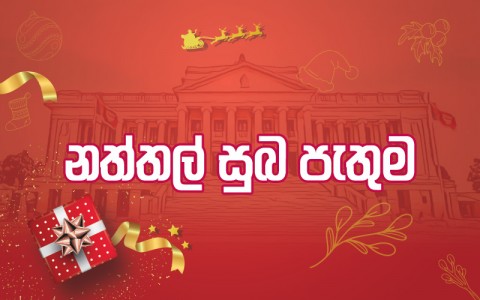
Christmas, the day that marks the birth of Jesus Christ, is celebrated with great reverence by Christians worldwide. Jesus Christ, who came into this world to bring salvation to all, saw no divisions among people, be they rich or poor. His birth among humble shepherds, and the divine message delivered to them by angels, underscores the profound truth that Christmas calls us to transcend divisions and act with unity, peace, and humanity.
Today, as a nation, we stand at a pivotal moment, united in our shared commitment to the future. We are witnessing the dawn of a new era for our country, one illuminated by the message of love and unity brought by Jesus Christ. Transforming our nation into a land where peace reigns and divisions are replaced by mutual understanding is a journey we are on together. Jesus Christ’s life, rooted in the pursuit of human freedom and justice, serves as an enduring inspiration for our work today.
Today, Sri Lanka stands at a crossroads, requiring a transformative social revival. This is a call for a collective national renewal, a shift towards a just, compassionate, and equitable society. It is a moment for us to unite, acting with determination, resilience, and courage, to achieve the shared vision of a prosperous nation and fulfilling lives for all.
Although society often compels us towards selfish competition, let us embrace the virtues of humanity this Christmas with empathy, respect for equality, fraternity, and coexistence. By fostering these values, we can work towards a society that thrives on mutual care and collective joy.
This Christmas, let us pledge to build a strong, stable economy, ensure social justice, and uphold a political culture rooted in democracy and integrity. Together, with firm resolve, we can create a beautiful nation filled with humanity and freedom.
May all Christians in Sri Lanka and across the world have a blessed and joyful Christmas!
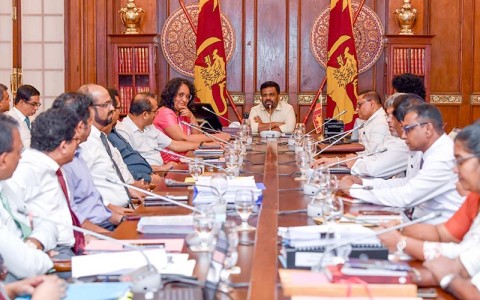
A high-level discussion on the critical preparations for Sri Lanka’s upcoming Mutual Evaluation (ME) by the Asia/Pacific Group on Money Laundering (APG) was held today (23) at the Presidential Secretariat under the patronage of President Anura Kumara Disanayake.
The meeting focused on preventing money laundering and countering terrorism financing (AML/CFT) and included participation from cabinet ministers, ministry secretaries, officials from the Central Bank of Sri Lanka, and the Financial Intelligence Unit (FIU).
The FIU highlighted the urgent implementation of cabinet-approved action plans involving 24 key institutions, including regulatory bodies and law enforcement agencies. These plans prioritize legal reforms, capacity building, enhanced inter-agency cooperation, and maintaining comprehensive records to meet the Financial Action Task Force (FATF) recommendations effectively.
President Disanayake directed the establishment of dedicated teams to ensure compliance and closely monitor progress. He emphasized the importance of collaboration and accountability in strengthening Sri Lanka’s AML/CFT framework.
He underscored the need for a robust and effective system to secure favourable evaluation outcomes, maintain financial stability, and bolster international confidence in the country’s economy.
Deputy Minister of Finance and Planning Dr. Harshana Suriyapperuma and Secretary to the President Dr. Nandika Sanath Kumanayake also attended at the meeting.
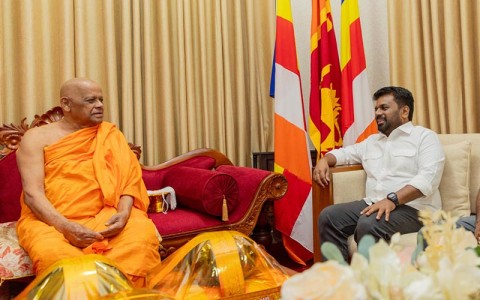
President Anura Kumara Dissanayake visited the Chief Prelates of the Malwathu and Asgiri Chapters this afternoon (20) and received their blessings.
The President first visited the Malwathu Maha Viharaya, where he met with the Chief Prelate of the Malwathu Chapter, the Most Venerable Thibbatuwawe Sri Sumangala Thero. During the meeting, the President inquired about the Thero’s well-being and engaged in a brief discussion.
Discussions included the current political situation and the President’s recent visit to India.
The Malwathu Maha Nayaka Thero, along with the Sangha, chanted Seth Pirith and extended their blessings.
Subsequently, the President visited the Asgiri Maha Viharaya, where he met with the Chief Prelate of the Asgiri Chapter, the Most Venerable Warakagoda Sri Gnanarathana Thero, and received his blessings.
Deputy Chief Prelate of the Asgiri Chapter, Venerable Anamaduwe Dhammadassi Thero, Deputy Secretary Venerable Narampanawa Ananda Thero, and Chief Incumbent of the Muthiyangana Raja Maha Viharaya, Venerable Muruddeniye Dhammarathana Thero, were also present at the occasion. The Maha Sangha chanted Seth Pirith and offered their good wishes for the President’s future endeavours.
Deputy Minister of Transport and Highways, Dr. Prasanna Gunasekera, and Member of Parliament Thanura Dissanayake also accompanied the President on this visit.
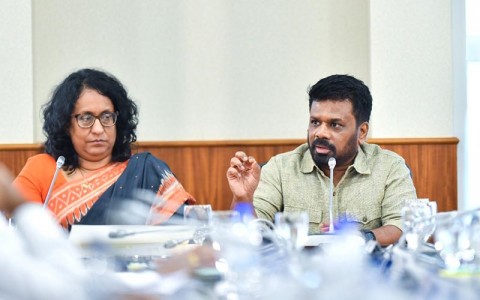
– President Anura Kumara Dissanayake
President Anura Kumara Dissanayake highlighted the critical challenge of transforming Sri Lanka’s public service into an efficient state mechanism. He pointed out that the newly appointed committee tasked with reviewing state institutions would make decisions without being influenced by political pressures.
The President shared these views while addressing the District Secretaries and Divisional Secretaries conference today (20)) at the Ministry of Home Affairs Auditorium, located in the “Nila Medura” building in Narahenpita.
President Dissanayake noted that the public service, which has undergone multiple name changes from Government Agents to District Secretaries, boasts a history of nearly 200 years. He emphasized its pivotal role in steering the country towards a new direction.
However, the President stated that the current situation is far from satisfactory regarding the ultimate goals and objectives. He noted that the public has no trust in receiving fair services from state institutions and emphasized that the entire system has collapsed as a functioning state mechanism.
The President asserted that both political authorities and the public service must ask themselves whether they are prepared to restore the broken system.
He clarified that his focus was not on the positions within public service but rather on who occupies those positions and their ability to lead effectively. He also highlighted the lack of dynamic leadership in certain sectors, a gap he aims to address by providing training for 1,500 officials in India, as agreed upon during his recent visit.
Additionally, the government intends to grant scholarships for higher education abroad to a significant number of students who pass the Advanced Level examinations next year.
President Dissanayake questioned the basis on which some institutions and positions were established and reiterated the challenge of transforming the public service into an efficient state mechanism. This, he noted, requires a new framework.
He reaffirmed the commitment to reviewing state institutions through the newly established committee, which will make impartial decisions uninfluenced by political interference. While there is no intention to downsize the public service, the President acknowledged concerns about the high expenditure involved in maintaining it. He advocated for reforms to make the system more efficient and structured.
President Dissanayake also stressed the importance of re-evaluating community-based projects and announced plans to expedite the Digital Identity Card initiative and launch the “Clean Sri Lanka” project starting January 01st, 2025.
He assured his full political support for these initiatives while emphasizing that their success depends on the contribution of public officials. Noting that 80% of the mandate rests on government employees, the President emphasized the need for harmony and mutual accountability between political authorities and government employees.
Accordingly, the President stated that previous mandates have demonstrated alignment between the expectations and goals of political authorities and the public service. He added that both sides are in agreement on the tasks at hand.
The President also noted plans to implement several projects under three key areas: eradicating poverty, digital transformation, and reshaping societal attitudes through the “Clean Sri Lanka” project. These efforts aim to elevate the country to a new level.
President Anura Kumara Dissanayake emphasized that he would stand in defense of any official who faces challenges, injustice, or unfair treatment while working towards these goals. However, he warned that any deliberate efforts by an official to obstruct or neglect these tasks would be met with equally firm action.
The event was attended by Prime Minister Dr. Harini Amarasuriya; Minister of Public Administration, Provincial Councils, and Local Government Dr. A.H.M.H. Abeyrathne, Deputy Minister P. Ruwan Senarath, Secretary to the President Dr. Nandika Sanath Kumanayake, Secretary to the Prime Minister G. Pradeep Saputhanthri, Secretary to the Ministry of Public Administration, Provincial Councils and Local Government S. Aloka Bandara, along with District Secretaries, Divisional Secretaries, and other officials.
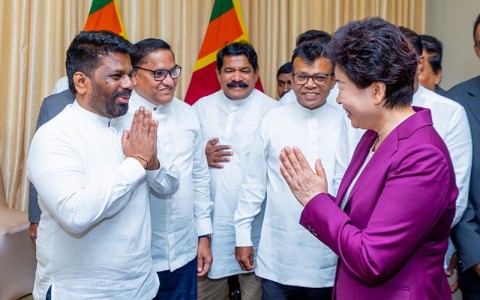
President Anura Kumara Dissanayake expressed his gratitude to the Chinese government for its support during debt restructuring as well as in the face of the economic crisis. He stated that his appreciation extends to China’s assistance in the debt restructuring program and its provision of loans to Sri Lanka during the economic challenges.
President Dissanayake made these remarks during a meeting with Ms. Qin Boyong, Vice Chairperson of the National Committee of the Chinese People’s Political Consultative Conference (CPPCC), held today (18) at the Parliamentary Complex.
Ms. Qin Boyong noted that China looks forward to continuing its work with the new government of Sri Lanka, further strengthening the longstanding relationship between the two countries.
The President also expressed his gratitude for China’s assistance during Sri Lanka’s disaster situations and the provision of school uniforms for children. He emphasized the continued need for China’s support in the future.
President Dissanayake highlighted the importance of completing the unfinished sections of the Central Expressway under Chinese management and expressed hopes to expedite the commencement of supply hubs and institutional projects cantered around the Colombo Port City and Hambantota District.
Ms. Qin Boyong stated that there are plans to restart maritime research activities, which were temporarily halted for various reasons, along with initiating relevant projects.
Furthermore, she mentioned that Chinese companies intend to establish themselves in the Hambantota investment zone, aiming to provide Sri Lanka with better global access. She also revealed that preparations are underway to warmly welcome President Anura Kumara Dissanayake during his future visit to China.
Foreign Affairs, Foreign Employment, and Tourism Minister Vijitha Herath, Deputy Speaker Dr. Rizvie Salih and committee member of the Chinese People’s Political Consultative Conference, Mr. Ma Youxiang, among others, were present at this event.
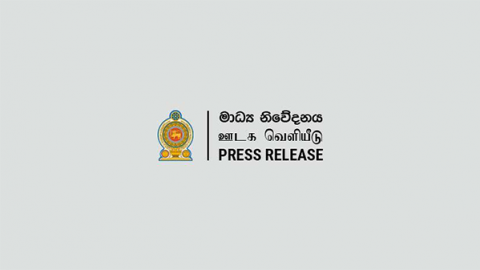
– President says addressing Parliament
“Yesterday, we engaged in a robust three-hour debate on debt restructuring. That discussion provided an opportunity to outline the roadmap that has led us to the current stage and to highlight the achievements we have made thus far. I will not delve into lengthy explanations, but I must address a narrative being propagated, a narrative that seeks to instill fear by suggesting that Sri Lanka may face bankruptcy again in 2028. Let me state firmly: under our leadership, we will never allow a situation like 2022-23 to reoccur in our country. In 2028, this government will still be in power, and we will have achieved stability and resilience.
We are confident in our goal of increasing Sri Lanka’s foreign exchange reserves to USD 15.1 billion by 2028. This is not just an aspiration; it is a commitment that we are diligently working to fulfill.
I also observed that many individuals, when presenting their views on this matter, spoke in an advisory tone and provided extensive information. As of today, we have restructured USD 12.55 billion in debt, including USD 1.7 billion of defaulted debt. Out of this USD 12.55 billion, USD 11.5 billion was borrowed during the 2015–2019 administration.
If those who now speak in an advisory tone had provided guidance back then, this country would not have ended up in bankruptcy. Therefore, advice delayed is advice wasted. The true value of advice lies in providing it at the right moment. Consequently, the advice being offered now holds no validity.
The second review with the International Monetary Fund (IMF) was successfully concluded, and the second tranche of funds was released. When we assumed office, the third review had been delayed. It was only in September that the third review was initiated. During the election period, the previous administration had not prepared for the third review.
Accordingly, immediately after the conclusion of the general election, on November 16, we began the third review discussions with the IMF. During the second review, several preconditions and agreements were reached by the previous government. One such agreement was the imposition of a property tax based on imputed income. This tax is scheduled to be implemented in 2025, as agreed upon during the second review.
During the second review, an agreement was reached to impose a fixed 30% tax on service exports. Additionally, it was proposed to eliminate the Special Commodity Levy by January and replace it with Value Added Tax (VAT).
The Special Commodity Levy is a mechanism used in our country to protect local producers by adjusting taxes, either increasing or decreasing them as necessary. However, during the second review, it was agreed to abolish this levy and replace it with VAT. Furthermore, it was decided to maintain the existing tax-exempt thresholds for personal income unchanged.
By April 2025, an agreement was also reached to simplify and remove the Surcharge VAT. Businesses in our country face significant challenges in obtaining VAT refunds, which affects their operations. The Surcharge VAT had enabled businesses to maintain necessary cash flow, but proposals have now been prepared to eliminate it.
Relief for Professionals through PAYE Adjustments
During the initiation of the third review, we decided to reduce the burden of the Pay-As-You-Earn (PAYE) tax imposed on professionals in our country. There was significant dissatisfaction regarding this tax among professionals such as university academics, doctors, and bank officials.
Following discussions, we were able to increase the tax-free threshold from LKR 100,000 to LKR 150,000. Additionally, the first band of the Personal Income Tax (PIT), taxed at 6%, was extended from LKR 600,000 to LKR 01 million. Accordingly:
• An individual earning a monthly income of LKR 150,000 pays zero tax.
• An individual earning LKR 200,000 is exempted from 71% of the tax they would have otherwise paid.
• An individual earning LKR 250,000 is exempted from 61% of the tax.
• An individual earning LKR 300,000 is exempted from 47% of the tax.
• An individual earning LKR 350,000 is exempted from 25.5% of the tax.
What does this mean? We have successfully provided greater relief to lower-income earners while offering reduced benefits to higher-income earners, achieving a fair and balanced outcome through this review.
Exemptions and Reductions for yoghurt and milk products
To improve the nutritional standards of our children, we have exempted yogurt and other dairy products from Value Added Tax (VAT). Additionally, the export service tax rate, previously set by the previous government at 30%, has been reduced to 15%.
An agreement was reached to increase the withholding tax from 5% to 10%. Many ordinary elderly citizens and retirees rely on interest income from their deposits for their livelihood. Typically, if someone earns monthly interest exceeding LKR 150,000, they will become subject to this tax.
However, if any citizen believes they should not be subjected to this tax, they can approach the Inland Revenue Department (IRD) and present their case regarding their tax status. A dedicated unit will be established within the IRD to assist individuals in clarifying their tax obligations and ensuring exemptions where applicable.
The primary objective here is to provide relief to retirees and individuals relying on fixed deposit income, ensuring that no one faces undue hardship. At the same time, we aim to broaden the tax base and enhance the tax mechanism’s efficiency.
Systematically Opening the Vehicle Market
Attention has also been directed toward systematically reopening the country’s vehicle market. This market includes a range of industries and entrepreneurs dependent on its operations, making it unsustainable to keep it closed indefinitely. Consequently, the vehicle import market will be reopened in three phases:
1. Passenger transport buses and vehicles for special purposes were reopened for import on December 14.
2. Private vehicles will be allowed for import starting February next year.
Concerns about triggering a dollar crisis are unwarranted. Extensive discussions have been held with the Central Bank, and estimates have been prepared regarding the amount of dollars expected to be allocated for these imports. These calculations ensure that the economy can sustain the impact.
To rejuvenate our economy, reopening the vehicle market is an essential step.
The grace period for the Parate law extended
The deadline for the Parate law was set to end on the 15th of December. However, small and medium-sized enterprises (SMEs) have not yet fully returned to normal conditions, so we hope to extend the grace period further. Our study revealed that 99% of loan defaulters owe less than LKR 25 million. Therefore, we have devised a plan. If the Parate law is completely suspended, it could cause a crisis in the banking system. Since people’s money is in the banking system, we must ensure the security of the banking system. The collapse of large financial institutions has caused immense hardship for the people. Depositors have committed suicide, and as a result, it is the people who have faced the consequences of the collapse of financial institutions. Therefore, in making decisions, we have considered both protecting the banking system and safeguarding small and medium-sized enterprises. Hence, we are working to extend the Parate law until March 31, 2025. During discussions with bank loan holders, a deadline of December 31 has been given to restructure their loans. Those with loans between LKR 25 million and LKR 50 million, excluding interest, can also negotiate loan restructuring with banks.
For those with loans over LKR 50 million, excluding interest, the deadline for loan restructuring has been extended until June 2025. Before that, they will have the opportunity to approach the bank for loan restructuring. We hope to provide some relief to these individuals in the upcoming budget. The proposals in the budget are expected to be implemented by April next year. Some of these will require legal amendments. Since October, the pensioners’ allowance has been increased by LKR 3,000, and the fertilizer subsidy has been increased to LKR 25,000. Instructions have been given to the Ministry of Finance to ensure that this fertilizer subsidy is delivered to farmers without delay.
Monthly Allowance of 6,000 for Underprivileged students
For children from schools in financial difficulties, a monthly allowance of 6,000 rupees is planned. Due to financial hardship, some children are not attending school, and funds have been allocated in this budget to provide the necessary support to those children. We hope to provide a monthly allowance of 6,000 rupees to these children. Additionally, we hope to include children who were previously excluded from the benefits in this scheme.
The Aswesuma was initially planned to be distributed in four categories. Of these, 800,000 people are expected to be dropped from the Aswesuma project by the 31st of December. We have extended the benefits for the lower categories of these two groups until March, and for the remaining categories, the benefits have been extended until December next year. There are some disagreements in the villages about who should receive the Aswesuma and who should not. Therefore, we have reviewed the Aswesuma distribution process. We will re-examine the information received through the system and ensure that those who are eligible for the Aswesuma, but have not yet received it, will be included.
The decision to distribute the Aswesuma in our country was made through the banking system. Normally, opening an account in a bank in our country requires an identity card. However, there are still people who have not been able to receive their Aswesuma for over a year because they are unable to open a bank account, even though they are entitled to the Aswesuma. These are issues that need to be closely addressed by the authorities. We have decided to provide time for people who do not have an identity card to open a bank account. We will ensure that the Aswesuma is granted not from the day they acquire their identity card but from the day they are eligible.
The discussions on the budget are expected to conclude by March 21. There are several amendments required to be made to the Aswesuma Act, and we hope for your cooperation in this regard.”
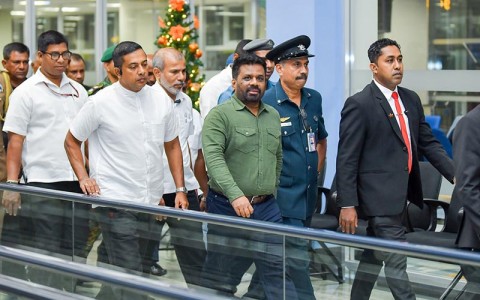
President Anura Kumara Dissanayake returned to the island yesterday(17) after successfully concluding a three-day official visit to India.
President Anura Kumara Dissanayake undertook this visit at the invitation of Indian President Droupadi Murmu. During the visit, the President engaged in several bilateral discussions with Indian Prime Minister Narendra Modi, Indian government ministers, and leading Indian business magnates.
The delegation accompanying the President included Foreign Affairs, Foreign Employment and Tourism Minister Vijitha Herath, as well as Labour Minister and Economic Development Deputy Minister Prof. Anil Jayantha Fernando.
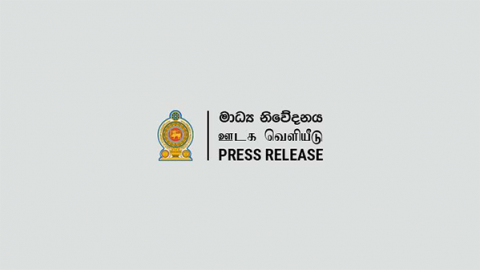
Your Excellency Droupadi Murmu, President of the Republic of India,
Your Excellency Narendra Modi, Prime Minister of the Republic of India,
Honourable Ministers, Distinguished Guests, Ladies, and Gentlemen,
Ayubowan, Vanakkam, Namaste, Good evening,
I am deeply touched, Madam President, by your gracious sentiments.
Permit me to express my sincere appreciation to you, the Government, and the people of India for the gracious hospitality accorded to my delegation and me in your country. I bring with me warm greetings from the people of Sri Lanka to our Indian friends.
Excellency,
The bonds between Sri Lanka and India transcend diplomacy and geographical proximity. Our relationship is civilisationally linked and defined by mutual respect, cooperation, and a shared destiny. From the shores of the Indian Ocean to the heart of the Subcontinent, we are bound by a common heritage of tradition, values, and even a vision for the future, inherent in our countries’ robust relations. Therefore, undertaking my first-ever State Visit to India is only natural.
My administration remains committed to further strengthening this age-old relationship. India has been a trusted friend, steadfast partner, and our closest neighbour, whose unstinted support has been pivotal in my country’s journey towards economic recovery, growth, and stability. India’s assistance to Sri Lanka in times of need and its unwavering solidarity are deeply cherished.
As Sri Lanka stands on the threshold of a new era, it is important to further strengthen its economic ties, enhance people-to-people connections, and advance regional and global cooperation. The future holds immense potential. The role of our two countries in ensuring peace, stability, security, and sustainable development in the Indian Ocean region is of paramount importance.
The strength of our partnership lies in collective action. It is through collaborative efforts that we can address the new and evolving challenges that transcend borders, whether they be in addressing environmental concerns, combating terrorism, or ensuring economic growth that benefits all citizens globally. Sri Lanka remains committed to fostering deeper cooperation with India, as a leader of the global South, to harness the opportunities of the 21st century for future generations to thrive in an interconnected and interdependent world.
Excellency,
Let this evening be a celebration of the enduring friendship between our two nations—a bond that has withstood the test of time and continues to flourish, bringing us closer together in the pursuit of peace and progress.
To the Government and people of India, I extend my deepest appreciation for the unwavering support and friendship. May our cooperation continue to grow stronger, and our shared journey brings prosperity to our nations and the entire region.
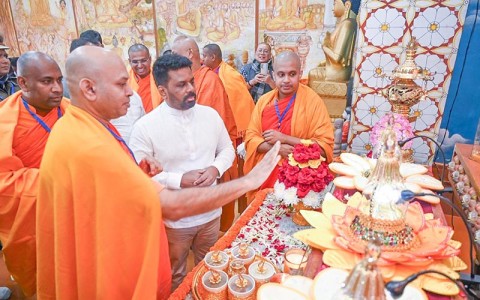
President Anura Kumara Dissanayake, who is currently on an official visit to India, arrived in Bodh Gaya this morning (17). He paid homage at the Mahabodhi Temple and the sacred Sri Maha Bodhi tree, the site where Prince Siddhartha attained enlightenment, and received blessings.
Bodh Gaya is one of the four main sacred sites associated with the life of Gautama Buddha, holding immense significance for Buddhists. In 2002, the Mahabodhi Temple in Bodh Gaya was designated a UNESCO World Heritage Site.
The General Secretary of Maha Bodhi Society of India, Venerable Pelwatte Seewalee Thero, and the Head of the Sarnath Center, Venerable Rathmalwala Sumiththananda Nayake Thero, extended blessings to the President during the occasion.
Minister of Foreign Affairs, Foreign Employment, and Tourism Vijitha Herath, along with the Minister of Labour and Deputy Minister of Economic Development, Prof. Anil Jayantha Fernando also participated in the event.
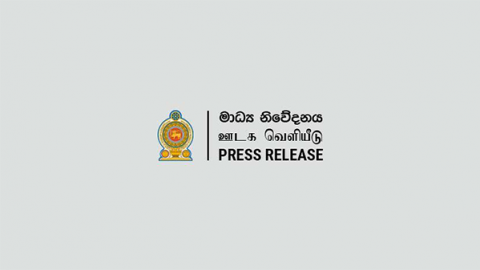
A meeting between President Anura Kumara Dissanayake and Indian President Droupadi Murmu took place today (16) at the Rashtrapati Bhavan in New Delhi.
During the meeting, both leaders exchanged views on strengthening the long-standing Indo-Lanka friendship, as well as regional security.
Following a cordial discussion, Indian President Droupadi Murmu hosted a dinner reception in honour of President Anura Kumara Dissanayake.
The event was attended by Minister of Foreign Affairs, Foreign Employment, and Tourism Vijitha Herath, as well as Minister of Labor and Deputy Minister of Economic Development, Prof. Anil Jayantha Fernando.


